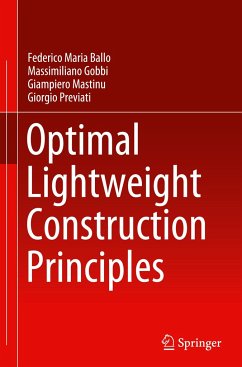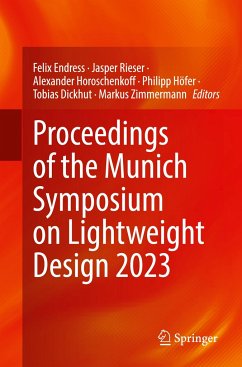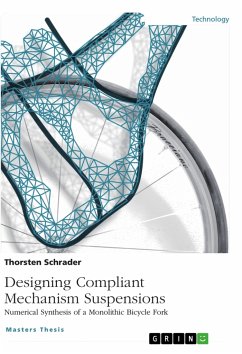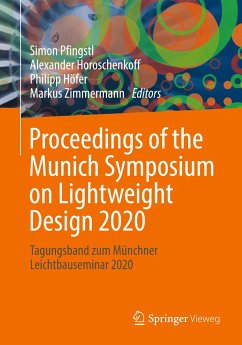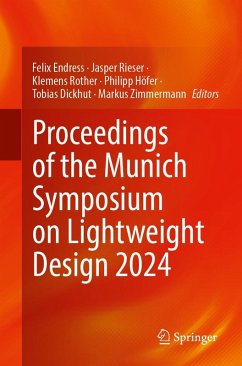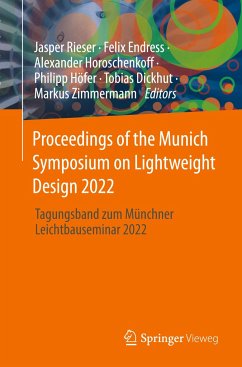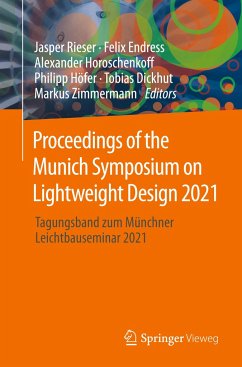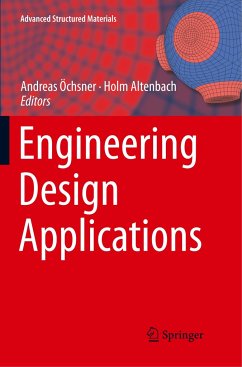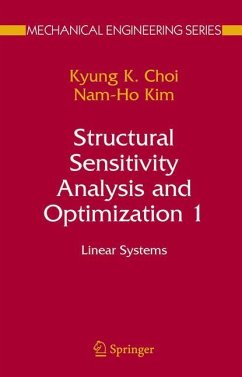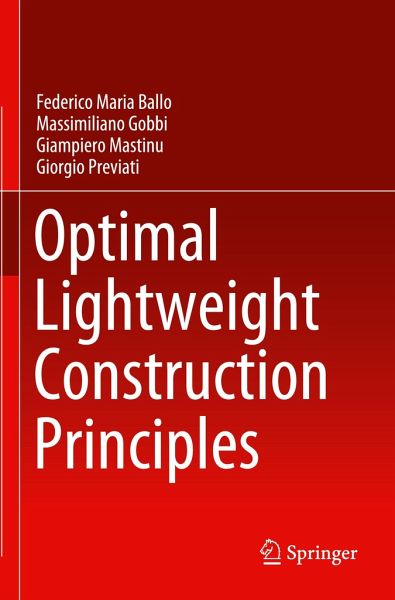
Optimal Lightweight Construction Principles
Versandkostenfrei!
Versandfertig in 6-10 Tagen
83,99 €
inkl. MwSt.
Weitere Ausgaben:

PAYBACK Punkte
42 °P sammeln!
This book presents simple design paradigms related to lightweight design, that are derived from an in-depth and theoretically sound analysis based on Pareto theory. It uses numerous examples, including torsion and inflated tubes, to fully explain the theories discussed.Lightweight Construction Principles begins by defining terms in relation to engineering design and optimal design of complex mechanical systems. It then discusses the analytical derivation of the Pareto-optimal set, before applying analytical formulae to optimal design of bent beams. The book moves through numerous case studies ...
This book presents simple design paradigms related to lightweight design, that are derived from an in-depth and theoretically sound analysis based on Pareto theory. It uses numerous examples, including torsion and inflated tubes, to fully explain the theories discussed.
Lightweight Construction Principles begins by defining terms in relation to engineering design and optimal design of complex mechanical systems. It then discusses the analytical derivation of the Pareto-optimal set, before applying analytical formulae to optimal design of bent beams. The book moves through numerous case studies of different beam and tube construction including beams subject to bending, thin walled tubes under torsion and truss structures.
This book will be of interest to researchers and graduate students in the field of structural optimisation and multi-objective optimization, as well as to practitioners such as design engineers.
Lightweight Construction Principles begins by defining terms in relation to engineering design and optimal design of complex mechanical systems. It then discusses the analytical derivation of the Pareto-optimal set, before applying analytical formulae to optimal design of bent beams. The book moves through numerous case studies of different beam and tube construction including beams subject to bending, thin walled tubes under torsion and truss structures.
This book will be of interest to researchers and graduate students in the field of structural optimisation and multi-objective optimization, as well as to practitioners such as design engineers.



